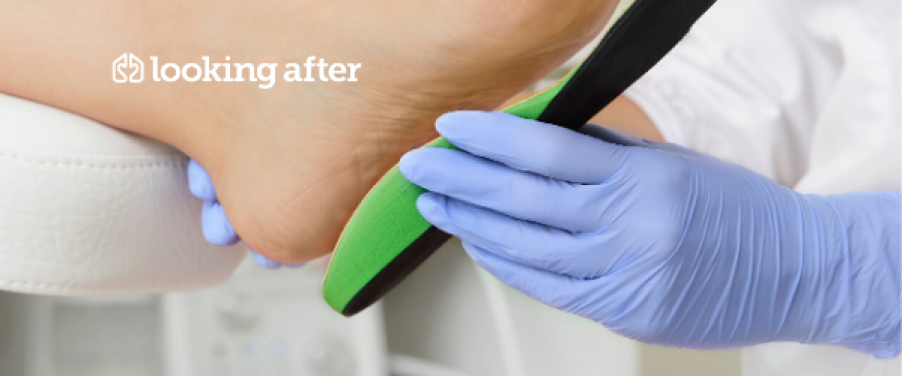Dementia and Chiropody
Dementia and Chiropody
Looking after your loved one with dementia poses many challenges and there are a lot of things to consider in keeping them safe, healthy and content. As a result of this, some potential problems can fly under a radar, as they’re deemed ‘unimportant’. Looking after a patient’s feet is one of them. Studies have found that podiatry and dementia care doesn’t always get the consideration it deserves, yet it’s so important to the patient’s wellbeing. In this article, we explore the best ways of looking after your loved one’s feet.
Footcare and dementia
Along with proper diet, bathing and personal hygiene, it’s important that dementia patient’s feet are properly looked after. Ensure their toenails are clipped and filed regularly and they have appropriate footwear, as well as a good hygiene routine to prevent infections. Understanding feet in dementia care can be crucial to preventing falls, which escalate to more serious health issues. Our foot health has a serious impact on our gait and balance. You may think that your elder no longer moves around as much, however, people in dementia care have a tendency to wander, causing them to walk for hours without feeling tired. This amount of exercise, while beneficial for their health, also puts a lot of pressure on their feet. Ensure that your loved one is not just living in slippers and other loose-fitting, old shoes or just socks that can increase their risk of falls and cause chiropody problems. Instead, get them well-fitting trainers that offer appropriate amount of support and prevent slips and falls, while helping them feel comfortable. If their old shoes are worn out, swap them for a new pair.
Treating feet in dementia care
If your loved one has developed issues like ingrown toenails, corns or infections, they may not be able to tell you straight away. People in dementia care can struggle to communicate discomfort, which instead turns into agitation or exacerbates symptoms of dementia. It’s important that their feet are checked regularly for any health problems and that you contact a chiropodist or podiatrist for any concerns. Studies have also shown that regular exercise is important to keep the dementia patient as healthy as possible, so healthy and painless feet will allow them to improve their quality of life. Foot treatments sometimes cause aggression and agitation, their condition could make them think that pain is being inflicted deliberately. If this is a problem, you could try distracting the person by having someone else talk to them during the treatment or offering some sweets. Should this prove unsuccessful, seek advice from a carer on how to manage foot problems in dementia care. Always be aware of diabetes and medication that could increase the risk of treating feet. If you’re not the immediate family of the elder, it’s important that chiropody issues are communicated to family members who can arrange treatment and facilitate purchase of new footwear and other items the dementia patient might need. Remember, communication should always come from a place of understanding. You never know how much the family has been through while caring for dementia patient, and it’s important they are not being blamed or shamed for the person’s feet issues. Compassion and empathy is more likely to allow successful co-operation between carer or chiropodist and patient’s family.
Free care finding service




